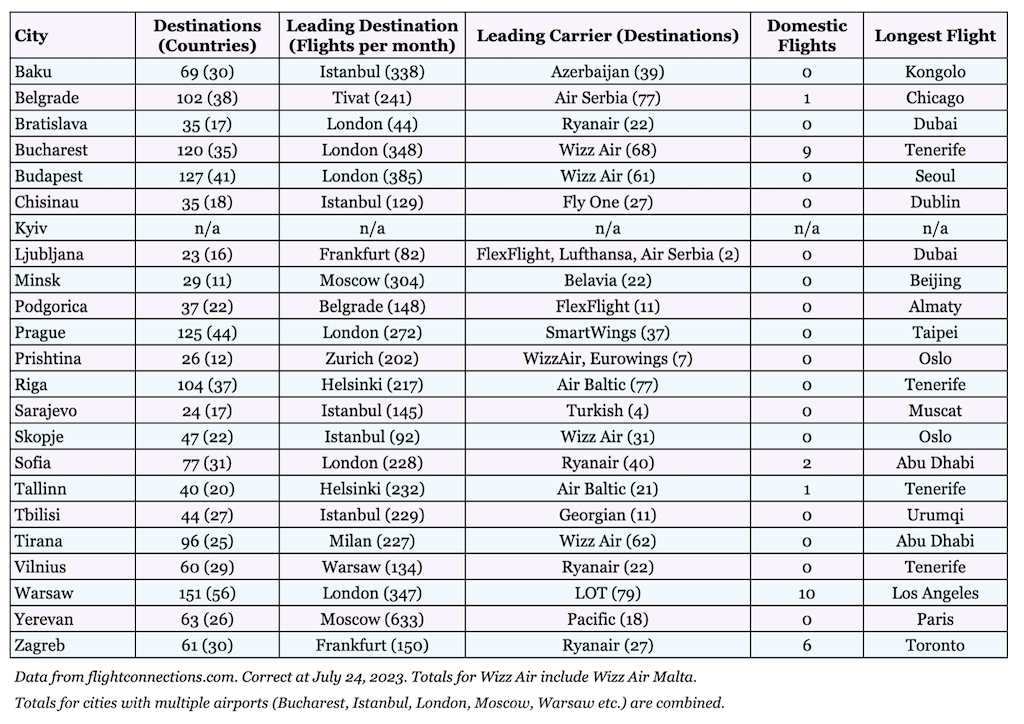Low-fare airlines Wizz Air and Ryanair are progressively monopolizing air travel routes within emerging Europe.
Following the steep slump in air travel demand due to the Covid-19 pandemic, a significant revival is being observed in the global aviation sector.
According to an ING study, international air traffic, driven mainly by vacation travelers, was around 91% of pre-Covid levels during this year’s first half, while Europe experienced a slight increase to 92%.
However, the growth rate is projected to taper off as we approach 2024 due to the rapidly diminishing capacity gap in aviation with the resurgence of passenger traffic.
The load factor, an aviation indicator that gauges the percentage of occupied seats, approached its 2019 mark of 82.6% in April 2023. This increase in demand coupled with delivery delays for new aircraft will likely result in rising ticket prices.

Wizz Air, emerging Europe’s dominant carrier, anticipates turning a profit in the fiscal year 2023-24, ranging from 350 to 450 million euros, after a loss exceeding 500 million euros in the 2022-23 fiscal year.
The airline’s CEO, József Váradi, confirmed a robust demand, especially in their traditional CEE markets. Indeed, Wizz Air is now the primary airline in five of the region’s 23 capital cities.
In cities like Bucharest, Wizz Air’s stronghold is so potent that it operates flights to 68 out of the city’s 120 direct flight destinations, dwarfing Romania’s national airline Tarom.
Ryanair, the region’s second-largest carrier, has recently announced plans to aggressively reenter Ukraine once it reopens for commercial aviation.
CEO Michael O’Leary shared plans to invest over three billion euros to rapidly reinvigorate Ukraine’s aviation industry once it’s safe to fly there again. Before Russia’s 2022 invasion, which grounded all flights, Ryanair was the second largest airline in Ukraine.
Of the 23 capital cities in the region, 10 can be reached via direct flights from fewer than 50 cities, according to our research.
The Estonian capital Tallinn ranks poorly with just 40 direct flights, considerably fewer than its Baltic neighbors. Riga in Latvia and Vilnius in Lithuania boast connectivity to more than 100 and 60 cities, respectively.
Conversely, Ljubljana, the Slovene capital, is the region’s worst-connected city with direct flights to just 23 cities.
Warsaw tops the list as the best-connected city in the region, with direct flights to 151 destinations in 56 countries worldwide.
Since Russia’s invasion of Ukraine and the subsequent EU-wide ban on Russian airlines, Yerevan, the Armenian capital, has emerged as Moscow’s key transit point.
With the renewal of flights between Georgia and Russia in May after a four-year break, Tbilisi is also set to become a crucial transit hub for Russians seeking to reach the EU in the upcoming months.


What do you think?
Show comments / Leave a comment